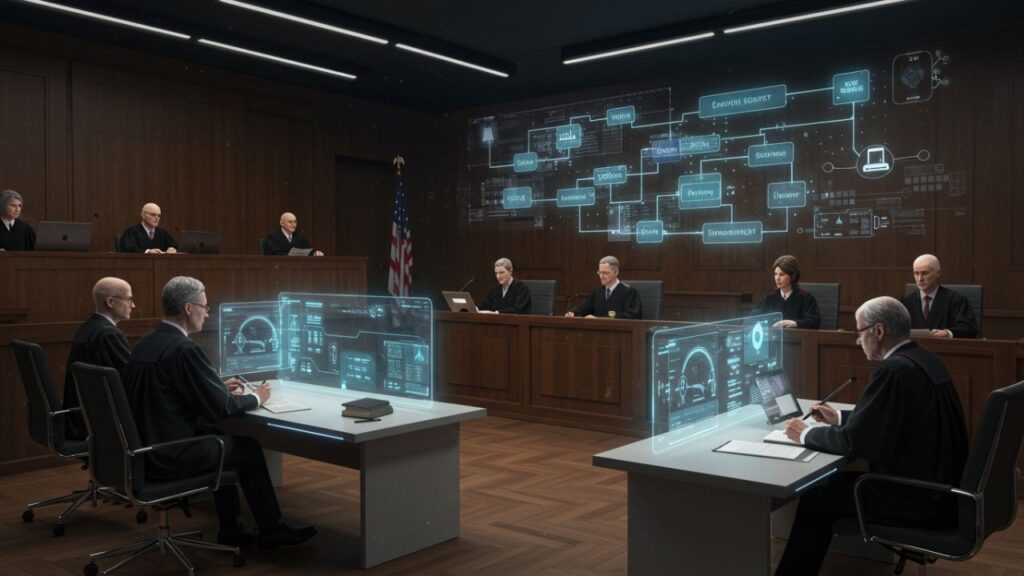The Ashcroft Capital lawsuit has become one of the most talked-about legal events in the real estate investment world this year. Ashcroft Capital, a real estate investment firm known for its multifamily property portfolio, is currently facing legal scrutiny over allegations involving investor relations and management practices. The case has stirred up concern among industry insiders, legal experts, and investors who once viewed the firm as a dependable partner in the real estate syndication space.
This article dives deep into the background of Ashcroft Capital, the nature of the lawsuit, the allegations being presented, and what it means for the broader investment community. We’ll also explore potential outcomes and what investors can learn from this unfolding situation.
What Is Ashcroft Capital?
Ashcroft Capital is a U.S.-based real estate investment company co-founded by Joe Fairless and Frank Roessler. The firm focuses primarily on acquiring and managing value-add multifamily apartment communities. Their business model involves syndicating investment deals, which allows individual investors to pool funds to invest in large-scale apartment complexes across states like Texas, Florida, and Georgia.
The company’s pitch was simple but attractive—through renovations and improved management, Ashcroft aimed to increase the value of underperforming properties and then share the resulting profits with investors. With millions of dollars in assets under management and a growing base of passive investors, Ashcroft Capital earned a reputation as a leading syndicator in the multifamily space.
Background of the Ashcroft Capital Lawsuit
In early 2025, a group of investors filed a lawsuit against Ashcroft Capital, citing various concerns about how their funds were managed and how information was presented to them. The complaint alleges a lack of transparency, misrepresentation of asset performance, and potential misuse of investor funds.
While Ashcroft Capital has publicly denied any wrongdoing, the court documents outline several claims that, if proven, could significantly impact the company’s operations and reputation. The real estate investment world has since been keeping a close eye on this legal battle.
Key Allegations Against Ashcroft Capital
The lawsuit contains multiple allegations, each of which raises important questions about how the company conducted business. Here’s a breakdown of the major claims:
1. Misrepresentation of Financial Data
Investors argue that they were misled by overly optimistic financial projections. Marketing materials reportedly included high return estimates that did not reflect actual performance metrics. According to the plaintiffs, several projects underperformed, and those results were not disclosed until much later than they should have been.
2. Failure to Disclose Key Risks
Another core issue in the Ashcroft Capital lawsuit is the alleged failure to properly communicate risks. The complaint states that investors were not made fully aware of declining occupancy rates, cost overruns during renovations, or changes in local real estate market conditions that affected property values.
3. Improper Use of Investor Funds
One of the most serious claims involves the potential mismanagement of investor funds. According to the lawsuit, some of the capital meant for property improvements or operations was diverted for unrelated business expenses or executive compensation without proper disclosure.
4. Breach of Fiduciary Duty
As syndicators, Ashcroft Capital and its executives had a fiduciary responsibility to act in the best interest of their investors. The lawsuit claims that decisions were made that prioritized internal gains over investor returns, which could constitute a breach of that legal obligation.
Legal Proceedings So Far
As of August 2025, the lawsuit is progressing through the pre-trial phase. Both parties have exchanged documents and are currently in the discovery process, where evidence is collected and reviewed. Ashcroft Capital has filed motions to dismiss parts of the case, arguing that investors were aware of the risks and that performance setbacks were due to market conditions beyond their control.
Legal analysts suggest that the outcome of this lawsuit may rest on internal communications and whether executives knowingly withheld important information. Investor agreements, quarterly reports, and internal emails will likely be key pieces of evidence in determining the validity of the claims.
What the Lawsuit Means for Ashcroft Investors
For current and former investors with Ashcroft Capital, the lawsuit has created uncertainty. Some have already initiated individual arbitration claims, while others are exploring options to exit their investments or sell their shares on secondary markets. Many are simply waiting to see how the case unfolds before taking action.
Industry-Wide Repercussions
The implications of this legal case extend beyond just Ashcroft Capital. The lawsuit has sparked broader conversations across the real estate investment industry about regulatory oversight, sponsor transparency, and investor protections.
Increased Regulatory Interest
Reports indicate that the Securities and Exchange Commission (SEC) has begun informally reviewing not just Ashcroft Capital, but also other sponsors with similar structures. Although no formal investigations have been announced, many legal experts believe the SEC could take a more active role in monitoring real estate syndications.
Changing Investor Expectations
Investors are becoming more cautious and are now demanding better access to data, independent audits, and clearer communication from sponsors. Many syndicators are responding by improving disclosure practices and enhancing due diligence procedures.
Potential Outcomes of the Ashcroft Capital Lawsuit
At this point, there are several directions the lawsuit could take. Each has different implications for the company and its investors:
1. Out-of-Court Settlement
One common resolution in such cases is a financial settlement. Ashcroft Capital could offer compensation to the plaintiffs in exchange for dropping the case. This would avoid a long trial and additional negative publicity.
2. Dismissal of the Case
If the court finds that the claims lack legal standing or sufficient evidence, the case could be dismissed. Ashcroft Capital would still face reputational damage, but they would avoid direct penalties.
3. Trial and Court Verdict
If the case proceeds to trial, a judge or jury could rule against Ashcroft Capital, potentially requiring them to pay damages or take corrective action. This could also include regulatory consequences if misconduct is confirmed.
What Investors Can Learn
Whether or not you’ve invested with Ashcroft Capital, this lawsuit offers valuable lessons for anyone participating in real estate syndication:
-
Do Thorough Due Diligence: Don’t rely solely on marketing materials. Always request access to full financial statements, past project results, and risk disclosures.
-
Seek Legal Advice Before Investing: Especially with large investments, having a lawyer review the agreement can help identify red flags.
-
Monitor Your Investment Closely: Passive investment doesn’t mean blind investment. Keep track of updates, ask questions, and expect transparency.
Conclusion
The Ashcroft Capital lawsuit serves as a significant case study in the world of real estate investing. While the legal process is still underway, the case has already affected investor confidence and sparked important industry conversations about ethics, accountability, and transparency.
As more details come to light in the coming months, real estate investors should pay close attention. Regardless of the outcome, this lawsuit reminds us all of the importance of clear communication, legal compliance, and trust in financial partnerships.






